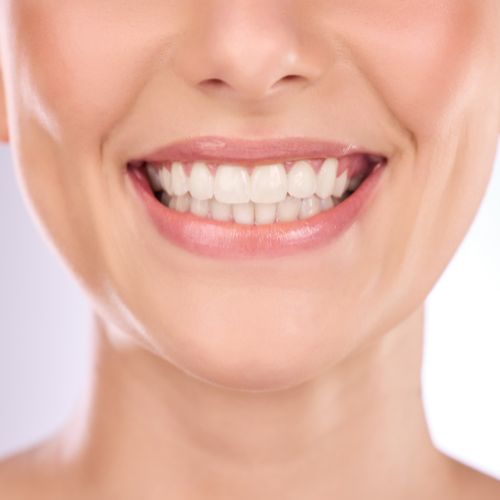- The Difference Between Crowns and Veneers
Choosing the Right Solution for Your Dental Restoration
When it comes to enhancing your smile or repairing damaged teeth, crowns and veneers are two of the most popular dental treatments. Both are effective solutions, but they serve different purposes and are used in distinct circumstances. If you’re considering either of these treatments, understanding the key differences between crowns and veneers is essential to making an informed decision. At Park Boulevard Family Dentistry, we are committed to providing the best dental care in Pinellas Park, FL, and helping you achieve a healthy, beautiful smile.
What Are Dental Crowns?
A dental crown is a cap that covers the entire tooth to restore its shape, size, and strength. Crowns are typically used to protect a tooth that is severely damaged, decayed, or weakened. They’re also used to restore a tooth after a root canal treatment or to hold a dental bridge in place. Crowns are made from durable materials like porcelain, metal, or a combination of both, offering a long-lasting solution to a variety of dental concerns.
Common Reasons for Getting a Crown:
- A tooth that is cracked, broken, or severely worn down.
- A tooth that has undergone a root canal and needs additional protection.
- A tooth with a large filling that weakens its structure.
- To cover a dental implant or hold a bridge in place.
What Are Veneers?
Veneers are thin, custom-made shells that cover the front surface of a tooth to improve its appearance. Veneers are typically made from porcelain or composite resin, offering a natural-looking finish that blends seamlessly with your other teeth. Unlike crowns, which cover the entire tooth, veneers are only applied to the visible side of the tooth. Veneers are ideal for cosmetic purposes and can be used to address minor imperfections, such as stains, chips, or gaps between teeth.
Common Reasons for Getting Veneers:
- To cover discolored or stained teeth that don’t respond well to whitening treatments.
- To fix chips, cracks, or other minor damage.
- To correct minor alignment issues, such as slightly crooked teeth.
- To close gaps between teeth for a more even smile.
Key Differences Between Crowns and Veneers
While both crowns and veneers can improve the appearance of your teeth, they are used for different purposes, and there are several key differences between the two treatments.
1. Coverage Area
The most significant difference between crowns and veneers is the amount of tooth coverage. A crown completely covers the tooth, providing full protection and restoration of its shape and size. On the other hand, a veneer only covers the front surface of the tooth. While veneers can improve the appearance of the tooth, they do not provide the same level of protection as crowns, making them ideal for less severely damaged teeth.
2. Treatment Purpose
Crowns are typically used for functional purposes, such as protecting a tooth from further damage or restoring a tooth after a root canal. They are also used to address structural issues, like a severely decayed tooth or one that is cracked or weakened. Veneers, on the other hand, are primarily a cosmetic treatment. They are used to enhance the appearance of your smile, fixing minor imperfections like discoloration, chips, or gaps.
3. Amount of Tooth Structure Removed
To prepare a tooth for a crown, your dentist may need to remove a significant amount of the tooth’s natural structure. This is especially true if the tooth is decayed or cracked, as it must be reshaped to accommodate the crown. In contrast, preparing a tooth for a veneer requires less removal of the tooth’s natural structure. Only a small amount of enamel is usually shaved off to allow the veneer to bond properly to the tooth surface.
4. Longevity
Crowns are known for their durability. They can last for 10 to 15 years or even longer with proper care. This makes them a great option for patients who need a functional restoration. Veneers, while also long-lasting, typically have a shorter lifespan than crowns. Depending on the material and care, veneers can last between 7 to 15 years.
5. Procedure Time
The procedure for placing crowns typically takes longer than for veneers. To create a crown, your dentist needs to take impressions of your tooth, prepare the tooth by removing enamel, and then send the impressions to a dental lab. A temporary crown may be placed while you wait for the permanent one to be made. Veneers, however, typically require less time. After the initial consultation, your dentist can often place the veneers in just two visits, as the veneers are usually crafted in a dental lab.
6. Cost
Generally, crowns are more expensive than veneers. This is because crowns are used for more severe cases that often involve more extensive preparation and materials. Veneers are typically considered a more affordable cosmetic treatment, though the cost can vary depending on the material used.
Choosing the Right Treatment for You
Choosing between crowns and veneers depends on your specific dental needs. If you have a tooth that is severely damaged or weakened, a crown may be the best option for you. If you are looking to enhance the appearance of your smile by fixing minor imperfections, veneers could be a great choice.
At Park Boulevard Family Dentistry, the best dentist in Pinellas Park, FL, we are here to help you make the best decision for your smile. Our team of experienced professionals will assess your oral health, listen to your aesthetic goals, and recommend the treatment that will give you the results you’re looking for.
Contact Us
Both crowns and veneers offer unique benefits and are effective solutions for improving the appearance and function of your teeth. Whether you need a crown to restore a damaged tooth or a veneer to enhance your smile, it’s important to work with an experienced dentist who understands your specific needs. At Park Boulevard Family Dentistry, we are committed to helping you achieve a smile you can be proud of. Contact us today to schedule a consultation and learn more about your options for crowns, veneers, and other cosmetic treatments!


